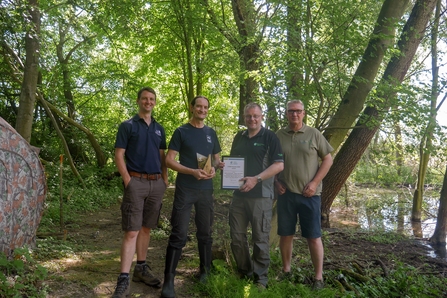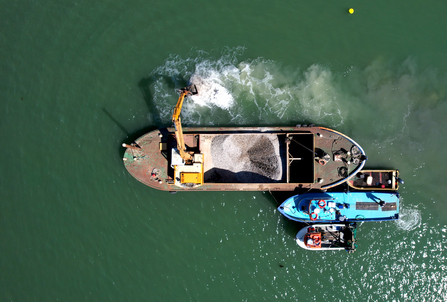Plastic-free tree guard initiative
For Plastic Free July, there is no better time to announce our position statement on plastic tree guards. As we become ever more aware of the problems with plastic pollution in our oceans, we look at how we can make positive changes, starting on land. Essex Wildlife Trust is removing plastic tree guards from reserves, recycling those that we can, and trialling new methods of tree planting, plastic free.





